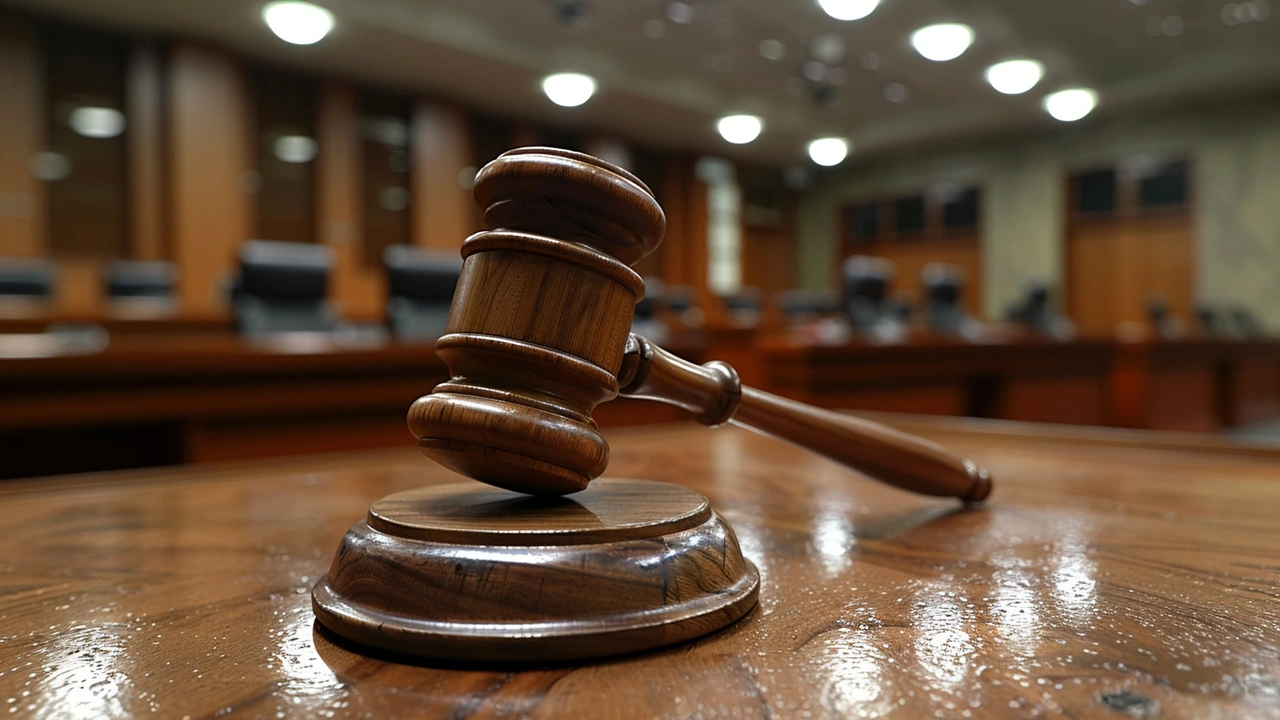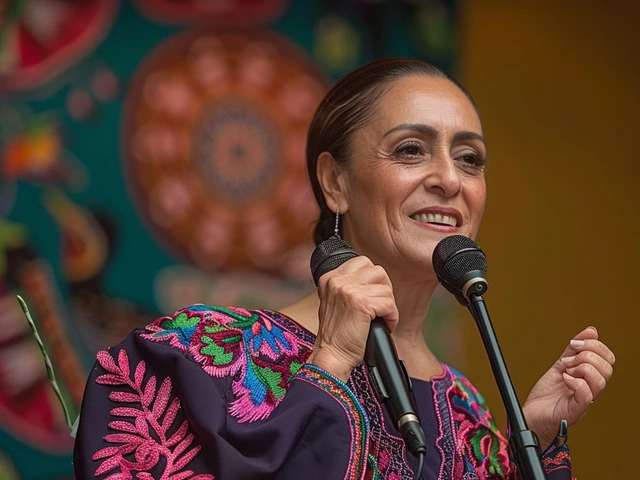High Court Intervenes in Muguka Ban Controversy in Coastal Counties
The High Court in Embu has stepped into the fray over the contentious ban on the sale and consumption of muguka in several coastal counties, issuing a temporary halt to the enforcement of the ban. This intervention follows a petition lodged by a group of muguka traders who claim that the prohibition imposed by the County Governments of Mombasa, Kilifi, and Kwale is not only unconstitutional but also detrimental to their economic well-being.
Justice Florence Muchemi presided over the ruling, underscoring the need to balance health risks with economic rights. The judge has provided the county administrations a 30-day window to present their case in response to the traders' petition, setting the stage for a comprehensive hearing on June 26, 2024. This development has been closely watched by both the affected traders and public health advocates, making it a litmus test for the complex interplay between public health policy and economic activities.
Muguka and Its Economic Significance
Muguka, a variant of the khat plant, is a popular stimulant in several regions of Kenya, particularly in coastal areas. Its economic importance cannot be understated, as it provides livelihoods for countless individuals involved in its cultivation, distribution, and sale. For many traders, muguka sales represent a critical source of income, and the ban has sparked fears of economic destabilization among these communities.
The petitioners argue that the ban on muguka is a disproportionate measure that unfairly targets their economic activities. They maintain that instead of a blanket ban, regulatory frameworks could be adopted to ensure responsible use while safeguarding public health. According to one of the traders, “We understand the concerns about health, but a complete ban is not the solution. Thousands of families depend on this trade to survive. We need better regulation, not elimination.”
Public Health Concerns and Legislative Actions
The County Governments of Mombasa, Kilifi, and Kwale have justified the ban on the grounds of public health risks associated with muguka consumption. They cite studies that link excessive use of the stimulant to various health issues, including mental health problems and cardiovascular diseases. “Our primary responsibility is to protect the health of our residents. The risks posed by muguka are well documented, and our ban aims to curtail these adverse health effects,” stated a county health official.
Despite these concerns, the affected traders contend that the ban was implemented without adequate consultation or consideration of the socio-economic impact. They emphasize that a balance must be struck between protecting public health and preserving economic opportunities. Legal experts following the case have pointed out that the situation could set a significant precedent for how public health policies are crafted and enforced in relation to economic rights.
The Legal Battle Ahead
As the court date approaches, both sides are gearing up for what promises to be a rigorous legal battle. For the traders, the stakes are high. They are not just fighting for their rights but also for the continued viability of an economic activity that underpins their communities. Their lawyers are expected to argue that the ban violates constitutional provisions that protect the right to engage in economic activities and seek lawful employment.
The county governments, on the other hand, will likely focus on the myriad health risks posed by muguka. They are expected to present evidence from health professionals and research studies to substantiate their claims about the dangers of the stimulant. This includes potential testimony from medical experts who have treated patients affected by its consumption.
Broader Implications
The outcome of this case will have far-reaching implications for both public health policy and economic regulation in Kenya. It will test the extent to which governments can regulate substances that pose health risks without infringing on economic liberties. Additionally, it may influence how future policies are crafted to address similar issues, potentially serving as a benchmark for balancing health and economic interests.
For now, traders and consumers of muguka in the coastal counties can breathe a temporary sigh of relief as they await the court's final ruling. The 30-day response period and the subsequent court hearing will be critical in determining the future of muguka trade in these regions. This high-profile legal tussle underscores the challenges of policy-making in pluralistic societies, where multiple interests must be harmonized to achieve equitable outcomes.
All eyes will be on the High Court on June 26, 2024, as the legal arguments unfold, and a decision is rendered that could potentially reshape the landscape of economic and health policy in the country. For now, the muguka traders remain hopeful that their pleas will be heard, and a more balanced solution will be reached.







Posts Comments
Saurabh Shrivastav May 31, 2024 AT 07:00
So let me get this straight - we’re banning a plant because some people might get too awake? Next they’ll outlaw coffee because it makes you productive. Wake up, Kenya. This isn’t prohibition. It’s just bad economics dressed up as morality.
Prince Chukwu June 1, 2024 AT 11:24
Muguka? Bro that’s not a drug it’s culture 😭🫶 Like when your grandma makes chai at 5am and you cry cause it’s the only thing that feels like home. They ban muguka they ban laughter, they ban sunrises on the coast. This ain’t health policy - this is cultural erasure with a clipboard.
Divya Johari June 2, 2024 AT 03:23
The court’s intervention is entirely inappropriate. Public health must supersede economic convenience. The data is unequivocal: chronic khat use correlates with hypertension, psychosis, and familial breakdown. To romanticize this as a livelihood is to ignore the suffering of children whose fathers are addicted to stimulants.
Aniket sharma June 3, 2024 AT 10:06
Hey everyone - real talk. This isn’t about right or wrong. It’s about people. Traders aren’t villains. They’re moms and dads trying to feed their kids. Maybe we need a licensing system? Or regulated hours? Or education? Not a sledgehammer. Just a little common sense.
Unnati Chaudhary June 4, 2024 AT 12:39
I’ve seen muguka in the markets - the smell, the chatter, the way people just... pause and breathe for a second. It’s not just a leaf. It’s a ritual. And yeah maybe some people go too far. But banning it? Feels like burning down the whole house because someone left the stove on once.
Sreeanta Chakraborty June 4, 2024 AT 13:52
This is a Western-funded plot. The same NGOs that pushed for cannabis legalization now want to normalize khat. They don’t care about Kenyans. They care about controlling the narrative. The court is being manipulated. The real threat isn’t muguka - it’s cultural colonization disguised as human rights.
Vijendra Tripathi June 6, 2024 AT 04:33
I know a guy in Mombasa who’s been selling muguka for 22 years. His son just graduated med school on the profits. That’s not crime. That’s resilience. Maybe we don’t ban it. Maybe we tax it. Maybe we train sellers to spot addiction. Just... don’t kill the whole ecosystem because one branch is rotten.
ankit singh June 7, 2024 AT 14:13
The constitution protects economic activity. The ban is arbitrary. The health claims are overstated. Studies show moderate use has minimal impact. Regulation > prohibition. Simple. End of story
Pratiksha Das June 8, 2024 AT 08:34
wait so if i buy muguka am i a criminal now?? like what about my aunty shes 70 and she chews it for her back pain?? they gonna arrest her?? this is so messed up
ajay vishwakarma June 8, 2024 AT 14:36
Let’s not forget - this isn’t just about money. It’s about dignity. When you’re told your way of life is illegal, you start believing you’re worthless. That’s the real cost. The court’s pause is a gift. Now let’s build something better.
devika daftardar June 10, 2024 AT 07:20
sometimes the things that hold us together are the things they try to take away. muguka is like that for so many. not a drug. a companion. a quiet friend in the early hours. dont erase it. fix it. make it better. not gone
fatima almarri June 12, 2024 AT 00:09
The socio-economic determinants here are deeply intertwined with structural marginalization. The coastal communities have been systematically under-resourced, and this ban functions as a form of symbolic violence against their informal economies. We need harm reduction frameworks, not punitive measures.
deepika singh June 13, 2024 AT 01:10
OMG I just saw this and I’m crying 😭 my cousin in Mombasa lost his whole income overnight. He used to sell muguka with his brother. Now they’re selling samosas on the side of the road. Like… can we just give them a break? They’re not hurting anyone.
amar nath June 13, 2024 AT 11:47
in my village we chew it after prayers. its like tea. its not crack. its not heroin. its just… a leaf. if you ban this you might as well ban the sun. and the sea. and the way the wind smells after rain. you cant ban culture
Pragya Jain June 15, 2024 AT 04:25
This is what happens when weak governments let foreign ideas infiltrate our traditions. Kenya doesn’t need approval from some UN panel to decide what our people can chew. The court is being used as a puppet. We must resist this cultural surrender.
Shruthi S June 16, 2024 AT 01:34
i just hope the traders are okay 😔 they're just trying to survive. no one deserves to lose everything because of a leaf
Neha Jayaraj Jayaraj June 17, 2024 AT 20:10
THEY’RE BANNING MUGUKA???!?!?!?!?!?!?!?!?!!?!?!?!? THIS IS THE END OF CIVILIZATION 🚨💥😭 I SAW A MAN CRY IN THE MARKET TODAY HE WAS HOLDING HIS LAST BUNCH LIKE IT WAS HIS BABY 🌿💔 #SaveMuguka #MugukaIsMyTherapy
Disha Thakkar June 19, 2024 AT 09:56
Oh please. Let’s be real - this is just another way for the coastal elites to keep their power. The ban was never about health. It was about control. The same people who profit from land grabs and water monopolies now want to control your chewing habits. Wake up.
Write a comment